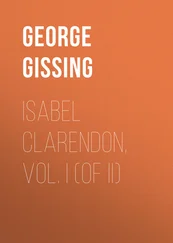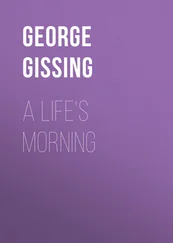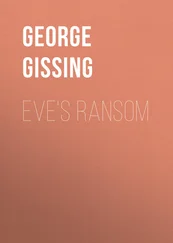George Gissing - Demos
Здесь есть возможность читать онлайн «George Gissing - Demos» — ознакомительный отрывок электронной книги совершенно бесплатно, а после прочтения отрывка купить полную версию. В некоторых случаях можно слушать аудио, скачать через торрент в формате fb2 и присутствует краткое содержание. Жанр: foreign_prose, literature_19, foreign_antique, на английском языке. Описание произведения, (предисловие) а так же отзывы посетителей доступны на портале библиотеки ЛибКат.
- Название:Demos
- Автор:
- Жанр:
- Год:неизвестен
- ISBN:нет данных
- Рейтинг книги:3 / 5. Голосов: 1
-
Избранное:Добавить в избранное
- Отзывы:
-
Ваша оценка:
- 60
- 1
- 2
- 3
- 4
- 5
Demos: краткое содержание, описание и аннотация
Предлагаем к чтению аннотацию, описание, краткое содержание или предисловие (зависит от того, что написал сам автор книги «Demos»). Если вы не нашли необходимую информацию о книге — напишите в комментариях, мы постараемся отыскать её.
Demos — читать онлайн ознакомительный отрывок
Ниже представлен текст книги, разбитый по страницам. Система сохранения места последней прочитанной страницы, позволяет с удобством читать онлайн бесплатно книгу «Demos», без необходимости каждый раз заново искать на чём Вы остановились. Поставьте закладку, и сможете в любой момент перейти на страницу, на которой закончили чтение.
Интервал:
Закладка:
They carry him into the coffee-shop. It was a fit. In five minutes he is restored, but does not come back to finish his speech.
There is an interval of disorder. But surely we are not going to let the meeting end in this way. The chairman calls for the next speaker, and he stands forth in the person of a rather smug little shopkeeper, who declares that he knows of no single particular in which the working class needs correction. The speech undeniably falls fiat. Will no one restore the tone of the meeting?
Mr. Kitshaw is the man! Now we shall have broad grins. Mr. Kitshaw enjoys a reputation for mimicry; he takes off music-hall singers in the bar-parlour of a Saturday night. Observe, he rises, hems, pulls down his waistcoat; there is bubbling laughter. Mr. Kitshaw brings back the debate to its original subject; he talks of the Land. He is a little haphazard at first, but presently hits the mark in a fancy picture of a country still in the hands of aborigines, as yet unannexed by the capitalist nations, knowing not the meaning of the verb ‘exploit.’
‘Imagine such a happy land, my friends; a land, I say, which nobody hasn’t ever thought of “developing the resources” of,—that’s the proper phrase, I believe. There are the people, with clothing enough for comfort and—ahem!—good manners, but, mark you, no more. No manufacture of luxurious skirts and hulsters and togs o’ that kind by the exploited classes. No, for no exploited classes don’t exist! All are equal, my friends. Up an’ down the fields they goes, all day long, arm-in-arm, Jack and Jerry, aye, and Liza an’ Sairey Ann; for they have equality of the sexes, mind you! Up an’ down the fields, I say, in a devil-may-care sort of way, with their sweethearts and their wives. No factory smoke, dear no! There’s the rivers, with tropical plants a-shading the banks, O my! There they goes up an’ down in their boats, devil-may-care, a-strumming on the banjo,’—he imitated such action,—‘and a-singing their nigger minstrelsy with light ‘earts. Why? ‘Cause they ain’t got no work to get up to at ‘arf-past five next morning. Their time’s their own! That’s the condition of an unexploited country, my friends!’
Mr. Kitshaw had put everyone in vast good humour. You might wonder that his sweetly idyllic picture did not stir bitterness by contrast; it were to credit the English workman with too much imagination. Resonance of applause rewarded the sparkling rhetorician. A few of the audience availed themselves of the noise to withdraw, for the clock showed that it was close upon ten, and public-houses shut their doors early on Sunday.
But Richard Mutimer was on his feet again, and this time without regard to effect; there was a word in him strongly demanding utterance. It was to the speech of the unfortunate prophet that he desired to reply. He began with sorrowful admissions. No one speaking honestly could deny that—that the working class had its faults; they came out plainly enough now and then. Drink, for instance (Mr. Cullen gave a resounding ‘Hear, hear!’ and a stamp on the boards). What sort of a spectacle would be exhibited by the public-houses in Hoxton and Islington at closing time to-night? (‘True!’ from Mr. Cowes, who also stamped on the boards.) Yes, but—Richard used the device of aposiopesis; Daniel Dabbs took it for a humorous effect and began a roar, which was summarily interdicted. ‘But,’ pursued Richard with emphasis, ‘what is the meaning of these vices? What do they come of? Who’s to blame for them? Not the working class—never tell me! What drives a man to drink in his spare hours? What about the poisonous air of garrets and cellars? What about excessive toil and inability to procure healthy recreation? What about defects of education, due to poverty? What about diseased bodies inherited from over-slaved parents?’ Messrs. Cowes and Cullen had accompanied these queries with a climax of vociferous approval; when Richard paused, they led the tumult of hands and heels. ‘Look at that poor man who spoke to us!’ cried Mutimer. ‘He’s gone, so I shan’t hurt him by speaking plainly. He spoke well, mind you, and he spoke from his heart; but what sort of a life has his been, do you think? A wretched cripple, a miserable weakling no doubt from the day of his birth, cursed in having ever seen the daylight, and, such as he is, called upon to fight for his bread. Much of it he gets! Who would blame that man if he drank himself into unconsciousness every time he picked up a sixpence?’ Cowes and Cullen bellowed their delight. ‘Well, he doesn’t do it; so much you can be sure of. In some vile hole here in this great city of ours he drags on a life worse—aye, a thousand times worse!—than that of the horses in the West-end mews. Don’t clap your hands so much, fellow-workers. Just think about it on your way home; talk about it to your wives and your children. It’s the sight of objects like that that makes my blood boil, and that’s set me in earnest at this work of ours. I feel for that man and all like him as if they were my brothers. And I take you all to witness, all you present and all you repeat my words to, that I’ll work on as long as I have life in me, that I’ll use every opportunity that’s given me to uphold the cause of the poor and down-trodden against the rich and selfish and luxurious, that if I live another fifty years I shall still be of the people and with the people, that no man shall ever have it in his power to say that Richard Mutimer misused his chances and was only a new burden to them whose load he might have lightened!’
There was nothing for it but to leap on to the very benches and yell as long as your voice would hold out.
After that the meeting was mere exuberance of mutual congratulations. Mr. Cullen was understood to be moving the usual vote of thanks, but even his vocal organs strove hard for little purpose. Daniel Dabbs had never made a speech in his life, but excitement drove him on the honourable post of seconder. The chairman endeavoured to make certain announcements; then the assembly broke up. The estrade was invaded; everybody wished to shake hands with Mutimer. Mr. Cullen tried to obtain Richard’s attention to certain remarks of value; failing, he went off with a scowl. Mr. Cowes attempted to button-hole the popular hero; finding Richard conversing with someone else at the same time, he turned away with a covert sneer. The former of the two worthies had desired to insist upon every member of the Union becoming a teetotaller; the latter wished to say that he thought it would be well if a badge of temperance were henceforth worn by Unionists. On turning away, each glanced at the clock and hurried his step.
In a certain dark street not very far from the lecture-room Mr. Cullen rose on tip-toe at the windows of a dull little public-house. A Unionist was standing at the bar; Mr. Cullen hurried on, into a street yet darker. Again he tip-toed at a window. The glimpse reassured him; he passed quickly through the doorway, stepped to the bar, gave an order. Then he turned, and behold, on a seat just under the window sat Mr. Cowes, & short pipe in his mouth, a smoking tumbler held on his knee. The supporters of total abstinence nodded to each other, with a slight lack of spontaneity. Mr. Cullen, having secured his own tumbler, came by his comrade’s side.
‘Deal o’ fine talk to wind up with,’ he remarked tentatively.
‘He means what he says,’ returned the other gravely.
‘Oh yes,’ Mr. Cullen hastened to admit. ‘Mutimer means what he says! Only the way of saying it, I meant—I’ve got a bit of a sore throat.’
‘So have I. After that there hot room.’
They nodded at each other sympathetically. Mr. Cullen filled a little black pipe.
‘Got alight?’
Mr. Cowes offered the glowing bowl of his own clay; they put their noses together and blew a cloud.
Читать дальшеИнтервал:
Закладка:
Похожие книги на «Demos»
Представляем Вашему вниманию похожие книги на «Demos» списком для выбора. Мы отобрали схожую по названию и смыслу литературу в надежде предоставить читателям больше вариантов отыскать новые, интересные, ещё непрочитанные произведения.
Обсуждение, отзывы о книге «Demos» и просто собственные мнения читателей. Оставьте ваши комментарии, напишите, что Вы думаете о произведении, его смысле или главных героях. Укажите что конкретно понравилось, а что нет, и почему Вы так считаете.












